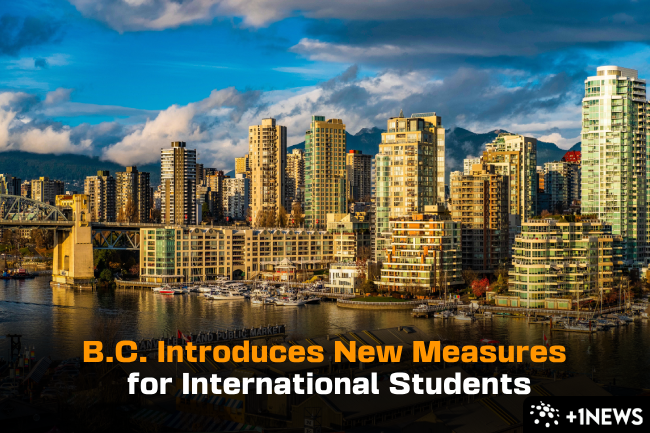On January 29, 2024, British Columbia (B.C.) introduced several new measures to enhance the experience of international students and ensure their success.
The goal is to stop unfair practices and enhance the quality of postsecondary education by setting higher standards and implementing safeguards for foreign students in B.C.
This decision came after Immigration Minister Marc Miller limited international student intake on January 22 to reduce their numbers in Canada. Click here for the full announcement.
B.C.’s new actions aim to improve standards and accountability for educational institutions in the province.
These measures will ensure that institutions deliver high-quality education and robust support for students to study and build successful lives in B.C.
The regulations will prevent universities from taking advantage of international students and prevent private institutions from hosting them if they don’t meet provincial education standards.
New B.C. Measures for International Students
Temporary ban on expanding institutions offering foreign education
B.C. has imposed a two-year ban on new education quality assurance certifications until February 2026.
During this period, new institutions can’t recruit overseas students listed on the government’s designated learning institutions.
Existing institutions can renew their designations during this time.
Enhanced compliance and enforcement
The province will conduct more frequent inspections of private postsecondary institutions to ensure they meet new quality standards and provide sufficient support to students.
New rules for public postsecondary schools will establish standards for international student enrollment, tuition transparency, and student support.
Public institutions will create and implement international education plans, monitor enrollment, and organize support services for students.
Higher standards for private degree programs
Stricter approval requirements include higher assessment standards for degree quality, meeting labor market needs, having sufficient resources, and providing student support.
Improved organizational standards include institutional capability, enrollment planning, governance, facilities, faculty and staff, diversity and anti-racism regulations, and student assistance like housing.
Changes to private degree institutions’ criteria include a more rigorous examination process for new degree proposals and tougher standards for new degree programs.
New language requirements for private institutions
The province is establishing minimal language criteria for private training institutes to better prepare new international students for their educational and professional journeys in B.C.
Reforms include strengthened and published compliance and enforcement actions, minimum language requirements, and higher distance delivery criteria.
Tuition Transparency
Public postsecondary schools must publicize tuition amounts for students throughout their studies.
This ensures that incoming students understand the full cost of their education before starting their degree.
Selina Robinson, Minister of Post-Secondary Education and Future Skills, stated, “International students come here for a good education, but too many are being exploited or taken advantage of.”
She added, “That’s why we’re introducing stricter requirements for institutions and strong safeguards to protect international students, provide them with a better path to success, and ensure B.C. continues to attract talented students to fill gaps in the labor market and drive our economy forward.”














